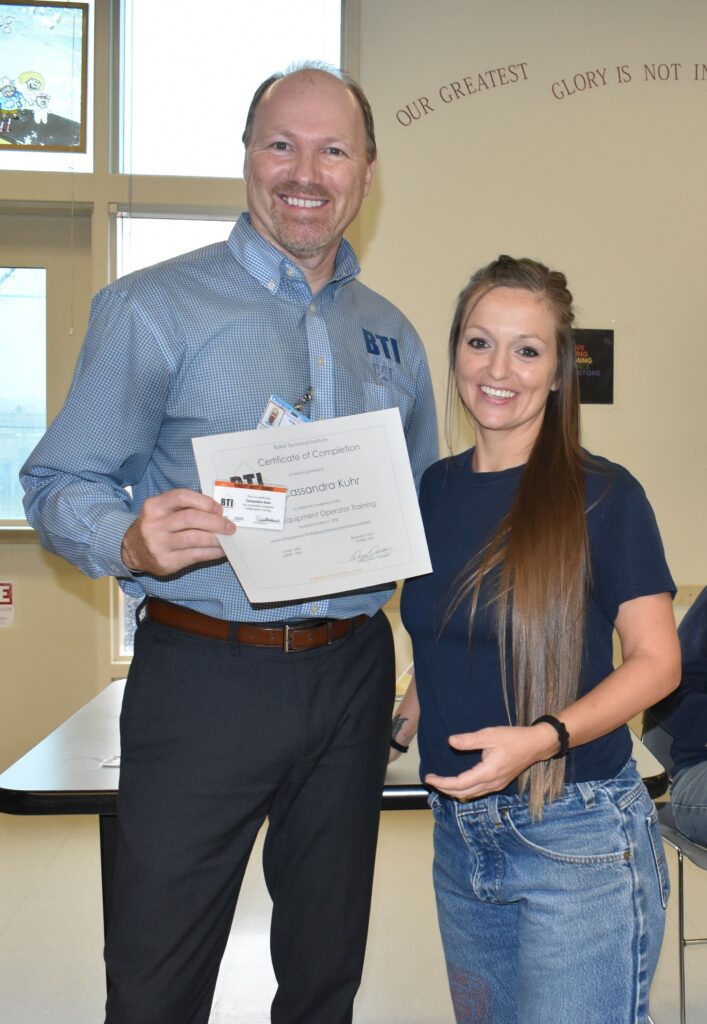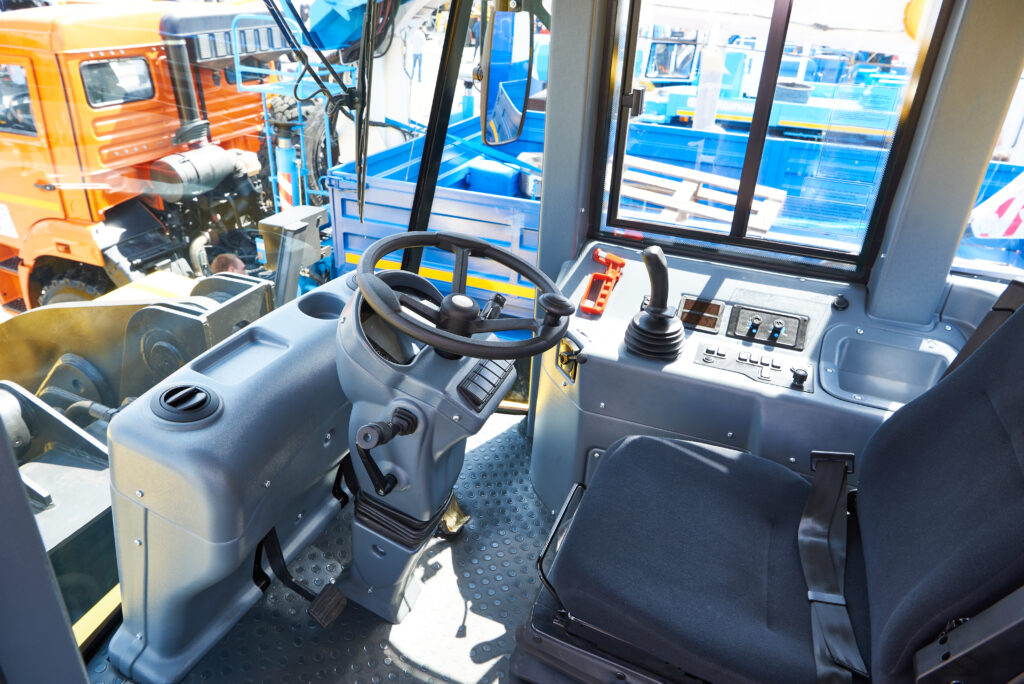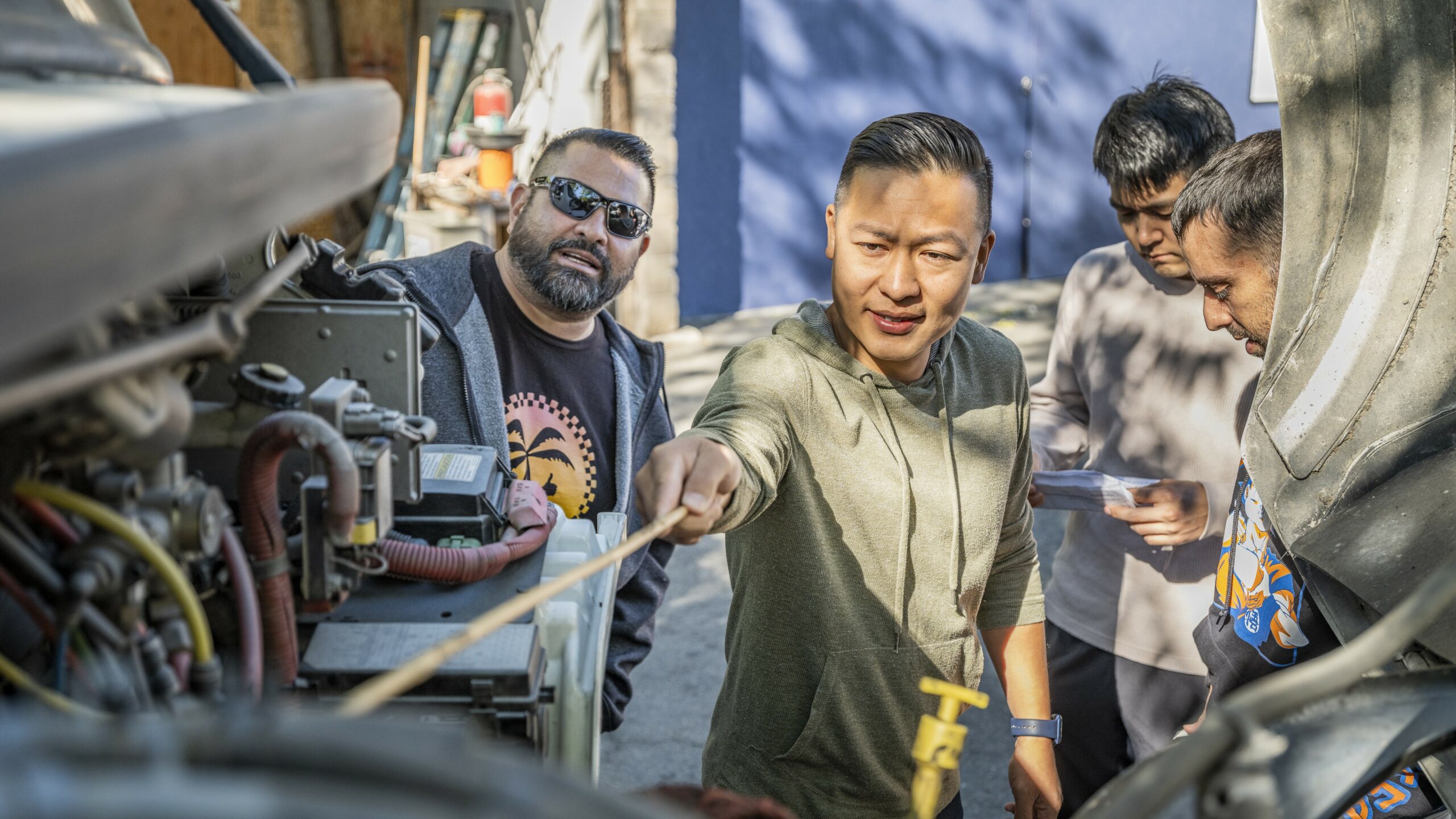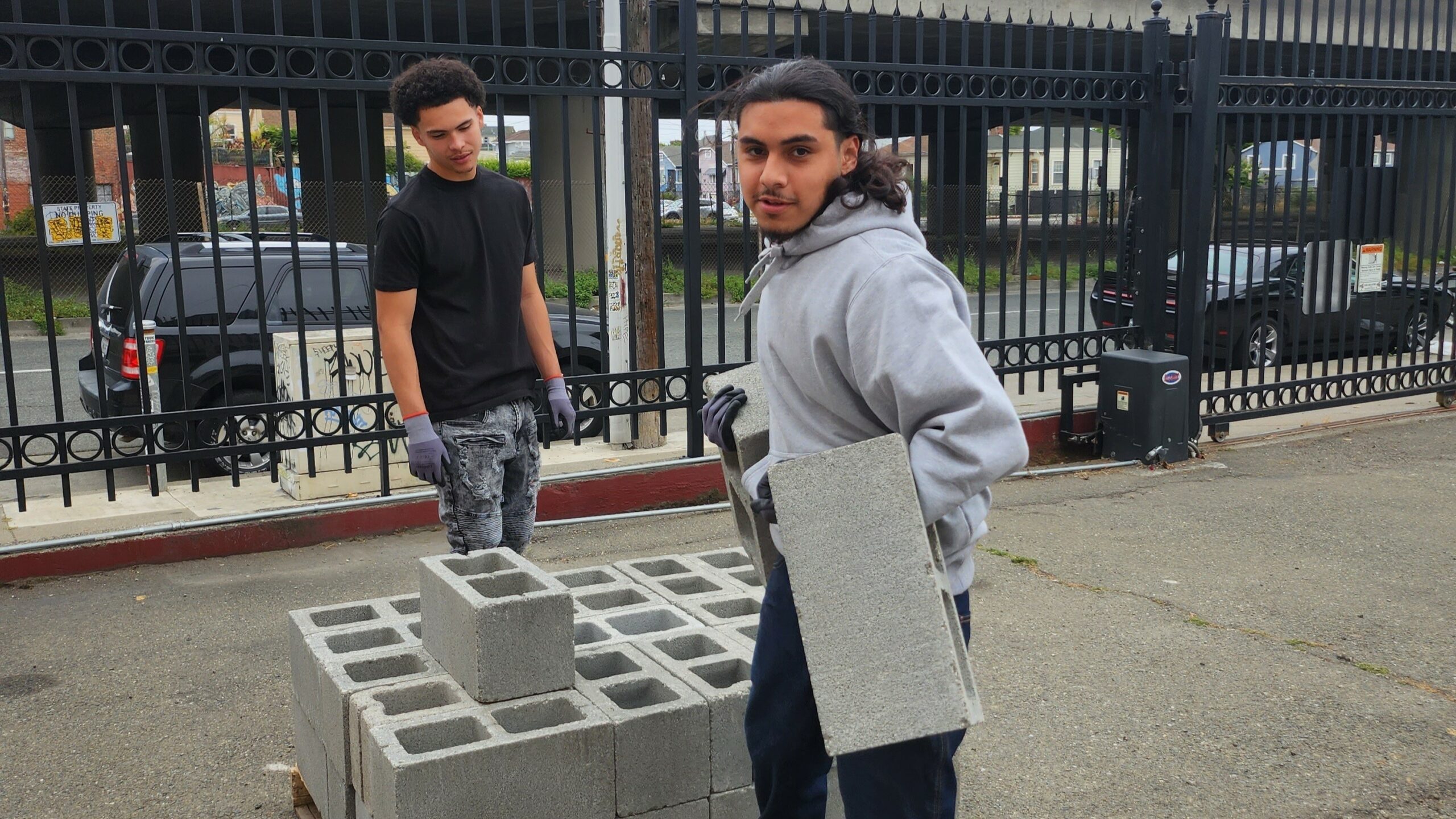A training program in Oregon is chipping away at the workforce gap in construction and engineering, while setting up currently incarcerated adults for success after they’re released. By offering new training in heavy equipment operation, the Coffee Creek Correctional Facility (CCCF) is also breaking the gender stereotypes for the trade.
CCCF is a women-only prison.

The idea to bring heavy equipment training there came from Tracie Hightower, education and training administrator for Oregon’s Department of Corrections (DOC). She says it worked with participants from her previous role.
“We partnered to bring the heavy equipment program to Oregon Youth Authority. The youth really liked the program. When I moved into my current position with the Department of Corrections, I wanted to bring this opportunity to adults in custody,” Hightower says.
“When the Bureau of Justice Assistance (BJA) grant came up, we applied and were awarded funding for this program,” she adds.
The federal BJA awarded Oregon’s DOC a $900,000 grant through the Second Chance Act to fund the program. Because of limited space, CCCF partners with Baker Technical Institute (BTI) for the training. BTI is a nonprofit technical college that focuses on skilled trades.
BTI not only provides the instructors and curriculum for CCCF, it brings an entire classroom – complete with simulators – to the location.
“We bought simulators, put them inside heated and cooled trailers, and put them inside mobile classrooms,” explains Doug Dalton, BTI president.
“We travel with trailers because they’re the foundation of how we start with a student. There’s a classroom inside the trailer, simulators that cover the experience of excavators, dozers, loaders, and graders, and that becomes the foundation of the work,” he explains.
Rural communities, reservations, high schools, and now corrections facilities that may not be close to colleges or training schools are the students BTI serves. Mobile classrooms for health care, construction and manufacturing (and more) have traveled to Washington state, Idaho, California, and throughout Oregon.
Dalton says 90% of BTI’s trainings are done at remote locations.
Challenge + Support = Career Opportunity
The heavy equipment program at CCCF is an 80-hour program over five weeks. The classes are every day, for half the day. The simulators enable students to gain application knowledge and develop their skills in a controlled and safe environment.
In addition to learning about heavy equipment, the program includes CPR and first aid certifications. More than 100 women in custody applied; twelve participated in this first cohort.
“Attending the course was extraordinary,” says adult in custody Cassandra Kuhr, who has been at CCCF for the past five years. “It was hands-on, very intriguing from start to finish. The instructors are knowledgeable and patient. The course tests you for accuracy on every movement you make, which allows you to challenge yourself.”

Kuhr says she has always been interested in machinery, and has family members in the construction industry. Additional features of the training will also help her and her classmates when it’s time to pursue a job.
“We do work with inmates on how to address their incarceration,” Dalton says. “They all have individual stories. In the work we do, often times, we find the adults in custody are very transparent, open, honest, and really, that’s the right answer.
“They can quickly delineate what they’ve learned by being incarcerated and how they’re a different person. Work ethic. Patience. The chance to take a time out, mature, recenter, get training – they all speak to it really well by the time we’re done with mock interviews. That helps break through the stigma,” he concludes.
To access the pipeline of opportunities for the adults in custody when they’re released, CCCF is working with BTI and WorkSource Oregon.
Hightower says she’s seeing that tapping into the formerly incarcerated workforce is gaining traction. Oregon’s Public Transportation Division has approached the DOC about providing bus driver training, and partnering with Oregon’s Department of Transportation to bring this program to adults in custody.
Kuhr is one step closer to getting her start in heavy equipment operating. She earned her certificate and plans to pursue a job when she’s released in August 2023.
“By participating in this training, it has made my future look brighter,” she says. “I have gained the knowledge to have a successful career, one to be proud of and also allow myself to provide for my family. I believe this prog is very helpful for many women to boost their confidence.”

Dalton says Kuhr’s career outlook is bright, and that’s good news for the community as well.
“When they (adults in custody) come out, the jobs available to them are not the jobs of a few years ago. And not the jobs that most of us, when we were young, were applying for in construction field,” he explains.
“Wages are at an all-time high, benefits are at an all-time high, and the supply of workforce is at an all-time low. So, participants have the opportunity of lifetime that, upon release, of not just getting average paying jobs. These are great paying jobs. And if they become tax-paying, productive citizens, they pay back any costs invested in them at any level very quickly. If they don’t go back into the system, they pay it back even that much quicker.
As I like to say, this is just the right work to do.”











